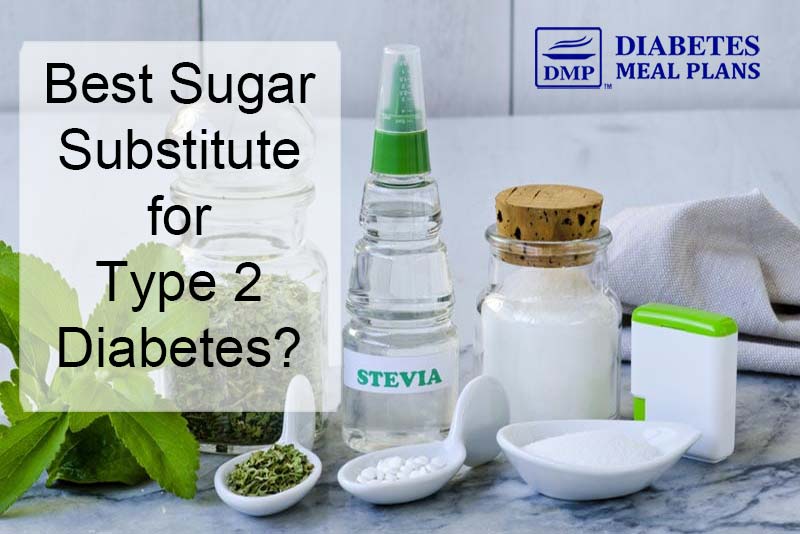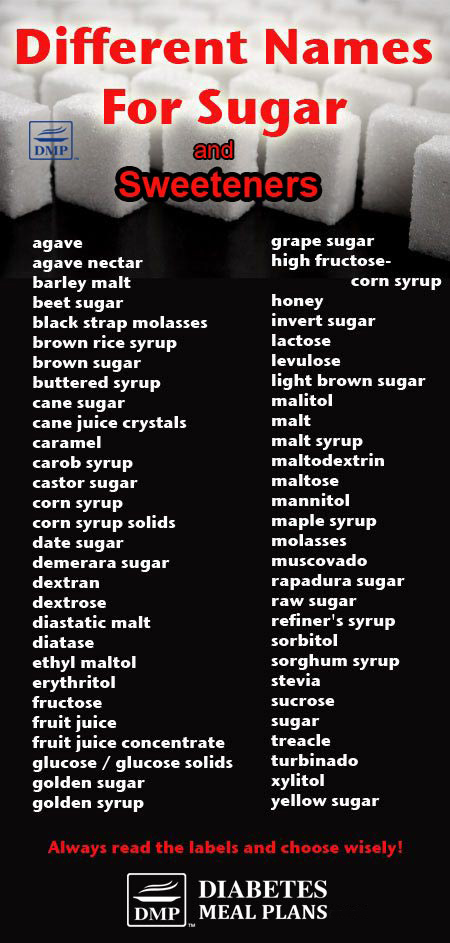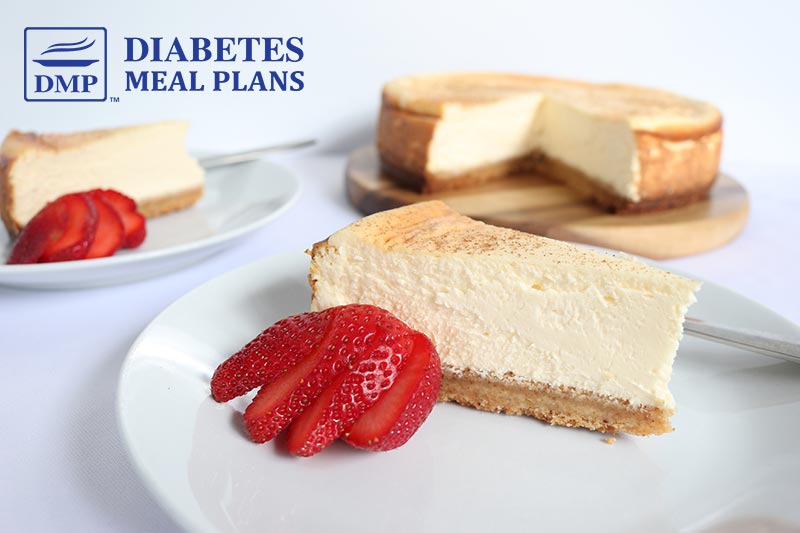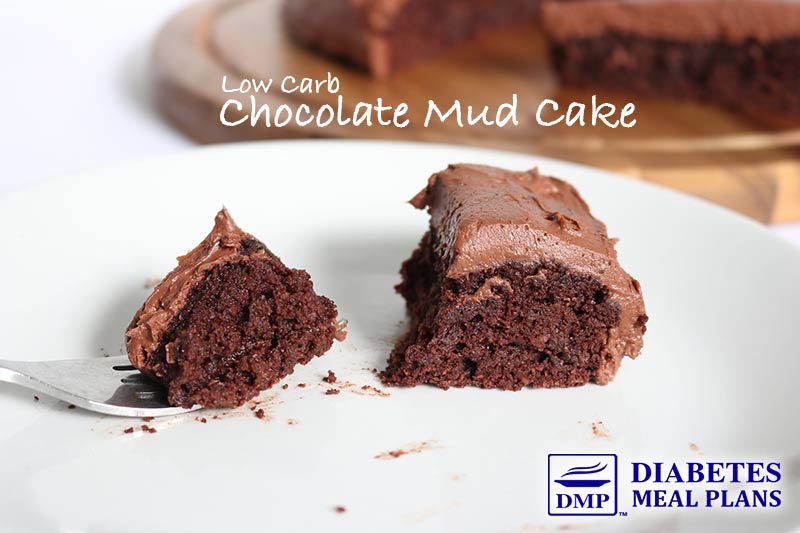Table of Contents[Hide][Show]
All of us love to indulge in desserts like cheesecake or decadent mud cake from time to time. Thankfully there is no need to feel deprived!
With many sugar substitutes available to us, you can thoroughly enjoy sweets. The key is choosing suitable options, so let’s explore the best Australian sugar substitutes for type 2 diabetes and prediabetes.

The Truth About Sugar: Not so Sweet!
There is a lot of data showing our health problems in Australia and around the globe are due to excessive sugar intake. The World Health Organisation recommends people eat no more than 25 g or 6 teaspoons of ‘added’ sugar per day.
Sugar is hidden in almost all processed foods, with a whopping 77% of grocery store items containing some kind of added sugar. Sugar and sweeteners can appear on food labels as one of the 59 different names listed below!

Since white table sugar (sucrose) contains 13 g of carbs per tablespoon, you’ll want to steer clear of it as often as you can. Many other forms of sugar are best avoided as well.
Here are some sugarless options to consider.
Artificial Sweeteners
Artificial sweeteners like aspartame have been linked to a wide range of potential adverse effects, including headaches, behavioural disorders, hormone disruption, mental stress, cancer, increased risk of stroke and cardiovascular issues. In general, we suggest you stay away from aspartame.
Saccharin and Acesulphame-K may negatively impact the gut bacteria, affect glucose and insulin metabolism, and have been associated with greater risk of stroke and cardiovascular issues.
Sucralose is probably safer than other artificial sweeteners. Although more research has been showing some negative effects. Sucralose may impact gut bacteria and function, decrease glucose tolerance, impact liver detoxification, and may be associated with cardiovascular issues.
In Australia, food additives are identified on labels by their name or a unique code number, as per the Food Standards Australia New Zealand (FSANZ) guidelines.
When reading food labels, look for these numbers (and avoid them):
- Aspartame: 951
- Sucralose: 955
- Saccharin: 954
- Acesulphame potassium (Ace-K): 950
Alternative Sweetener Options
These sweeteners are somewhat processed but unlike the artificial sweeteners mentioned above, they are made from real plants and tend to be safer to consume.
Stevia
Stevia is an herb originating from South America that can be used as a zero-carb sweetener in a white powder or a liquid form.
Liquid stevia extracts are popular because they are convenient, mix easily into liquids, and are less processed that powdered forms. However, these can be hard to come by in the supermarket but may be available in health food stores.

Sugar Alcohols
Erythritol, xylitol, mannitol, and sorbitol are all sugar alcohols derived from the sugar naturally occurring in fruits and veggies. Sugar alcohols are zero-calorie, super low-carb sweeteners that do not affect blood sugar levels (in most people).
Erythritol is a commonly used product in sugar substitutes like Natvia and Truvia, which is a blend of erythritol and stevia. Many people find the blends more palatable than consuming stevia or erythritol alone.
Just to set the record straight: There is no strong evidence to suggest erythritol is dangerous (causes clots, heart attacks and strokes), as news headlines have tried to claim in the past. This is all nonsense – nothing but news grabs and poorly reported research!
Out of all the ‘tols’ erythritol is more digestible and tolerable for the digestive region.
Be cautioned that the other ‘tols’ can have a laxative effect or cause stomach cramps in many people. Also, xylitol is toxic to animals.
Monk fruit
Monk fruit extract is derived from small melon that naturally grows in Asian regions like China and Thailand. Like many other sweeteners in this category, monk fruit contains no calories, fats, protein, or carbs! You can find it in both a liquid and a powered form.
Research on Sweeteners and Type 2 Diabetes
There is a wide range of research on sweeteners (see the reference list below), here’s a few of the study outcomes showing they are safe to consume.
- Sugar alcohols like erythritol have been shown to have little to no impact on blood sugar levels, making them an acceptable sweetener for more people with diabetes.
- Xylitol and erythritol have shown antiglycaemic and antidiabetic benefits.
- Research also shows that consuming erythritol may even have a positive effect on vascular function and blood pressure in type 2 diabetes
- Erythritol will NOT cause strokes and heart attack – we crack these myths over here.
- Stevia has been shown to be a good alternative to sucralose, as even large amounts had no effect on blood glucose, HbA1c, insulin levels, or lipid levels.
- The overall evidence for stevia suggests it is safe to use and may provide some anti-diabetic health benefits.
- Monk fruit may have antioxidant and anti-inflammatory influences.
- Studies suggest that stevia may have therapeutic effects on parameters related to metabolic syndrome such as lipids, blood pressure, insulin and blood sugar levels, and body weight.
- Research suggests that stevia could be used to induce weight loss, decrease inflammation, and positively impact cardiovascular conditions like atherosclerosis.

Best Australian Store Bought Sugar Substitutes
There are a wide range of sugar substitutes now available at stores like Coles and/or Woolworths.
Best Sweeteners at Coles and/or Woolworths
- Natvia or Truvia granular sweetener, natural sweetener organic stevia, or sweetener tablets.
- Whole Earth 100% natural sweetener co. nature sweet packets, and monkfruit sweetener.
- Equal stevia sweetener tablets (not the normal Equal, which is aspartame).
- Raw Earth natural sweetener stevia & monk fruit.
- Lakanto monkfruit sweetener.
- Sugarless stevia organic natural sweetener
Best Sweeteners at IGA
- Whole Earth monk fruit sweetener or sweetener granules
- Natvia sweetener sticks
Sweeteners to Avoid
The following sweeteners contain artificial sweeteners like aspartame and sucralose, along with other ingredients you don’t need, such as maltodextrin.
- Stevia Sweet granulated sweetener
- Equal
- Sugarine
- Splenda
- Hermesetas sweeteners
- Woolworths or Coles generic sweeteners
- Agave sweetener
Recommendation for Sugar Substitutes and Type 2 Diabetes
Stevia is our favourite sweetener because it is tolerated well by the majority of people with diabetes. Blends such as Natvia (stevia/erythritol blend) are also a good option and can be substituted 1:1 for sugar, so are good for things like baking.
With that said some people can’t stand the taste of stevia and prefer to reach for monk fruit extract. It comes down to personal preference in taste.
Other Questions about Sweeteners
Are all-natural sweeteners like agave nectar, manuka honey, and coconut sugar OK to eat?
Even though these may be less processed than white sugar, “natural” sugars like these are still not blood sugar-friendly. All sugars contain about the same amount of carbohydrates, 12-19 grams per tablespoon.
Can diabetics have artificial sweeteners?
Yes. But as noted above, these have been linked to some negative health effects, so in general we recommend to minimise intake of these and replace them with other sweeteners like stevia, sugar alcohols or monk fruit sweeteners.

Lower Blood Sugar, Lose Weight, Live Better — It All Starts Here
Join Dr. Jedha’s free bi-weekly eNews — discover Aussie supermarket finds, food swaps, and trusted blood sugar advice tailored to life in Australia.
References
- https://www.bmj.com/content/378/bmj-2022-071204
- https://www.cell.com/cell/fulltext/S0092-8674(22)00919-9
- https://www.mdpi.com/1422-0067/22/10/5228
- https://www.ncbi.nlm.nih.gov/pmc/articles/PMC8227014/
- https://www.ahajournals.org/doi/full/10.1161/STROKEAHA.118.023100
- https://www.ncbi.nlm.nih.gov/pmc/articles/PMC6389377/
- Shankar et al. Non-nutritive sweeteners: Review and update. Nutrition. 2013;29:1293–1299.
- Swithers S. Artificial sweeteners produce the counterintuitive effect of inducing metabolic derangements. Trends in Endocrinology and Metabolism. 2013;924(9).
- Swithers S. Artificial sweeteners are not the answer to childhood obesity. Appetite. 2015.
- Swithers et al. Experience with the high-intensity sweetener saccharin impairs glucose homeostasis and GLP-1 release in rats. Behavioural Brain Research. 2012;233:1– 14.
- Pearlman et al. 2017. The Association Between Artificial Sweeteners and Obesity. Curr Gastroenterol Rep. 2017 Nov 21;19(12):64.
- Gardener et al. Artificial sweeteners, real risks. Stroke. 2019 Mar; 50(3): 549–551.
- https://www.mdpi.com/1422-0067/22/10/5228
- https://www.eurekalert.org/news-releases/947477
- https://pubmed.ncbi.nlm.nih.gov/36364710/
- https://www.ncbi.nlm.nih.gov/pmc/articles/PMC8600158/
- https://pubmed.ncbi.nlm.nih.gov/36171777/
- https://www.ncbi.nlm.nih.gov/pmc/articles/PMC9824470/
- https://pubmed.ncbi.nlm.nih.gov/4076932/
- https://pubmed.ncbi.nlm.nih.gov/21765599/
- https://pubmed.ncbi.nlm.nih.gov/21434778/
- https://pubmed.ncbi.nlm.nih.gov/22832597/
- https://www.ncbi.nlm.nih.gov/pmc/articles/PMC3854338/
- https://pubmed.ncbi.nlm.nih.gov/21351724/
- https://pubmed.ncbi.nlm.nih.gov/17852496/
- https://pubmed.ncbi.nlm.nih.gov/15826043/
